Books I Loved in 2016
TL;DR: Growing up, my dad was a voracious reader. Our house was always filled with piles of dog-eared science fiction and fantasy novels. Even before I was old enough to start reading them myself, I found...

Image credit: Darwin Vegher
Growing up, my dad was a voracious reader. Our house was always filled with piles of dog-eared science fiction and fantasy novels. Even before I was old enough to start reading them myself, I found them fascinating. I remember vividly being on time-out once and studying the designs on the spines of his books. I don’t read nearly as much as he did, but I still try to read as much as I can. Here are some of the best books I read in 2016.
-
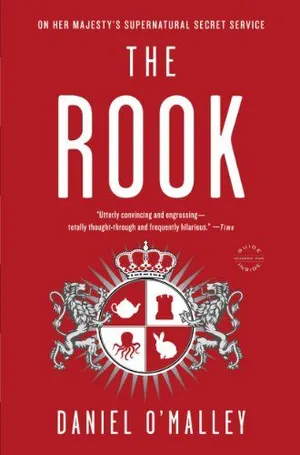
The Rook, by Daniel O’Malley
“The body you are wearing used to be mine. …You are in danger. Just because you are not me does not make you safe. Along with this body, you have inherited certain problems and responsibilities. Go find a safe place, and then open the second letter.”
This book has one of the strongest opening chapters I’ve ever read. (You can read it here!) Myfanwy (rhymes with Tiffany) comes to in the pouring rain in a London park, surrounded by bodies wearing latex gloves. She has no memory of who she is, but in her pocket, she finds a letter from herself. It’s got a sort of X-Files meets Memento vibe, and I can’t recommend it enough.
-
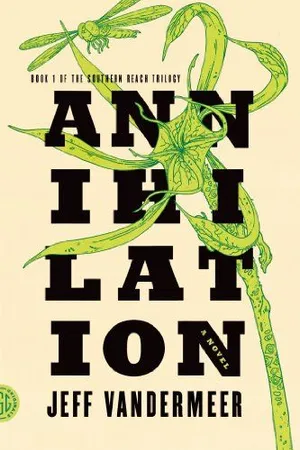
Annihilation, by Jeff Vandermeer
Lots of other reviews compared this to the first season of Lost, and I think that's accurate. There's a compelling sense of paranormal mystery, but ultimately no satisfying answers.Edit, 2018: Confession time. I didn’t like this book at all the first time I read it. I felt like I got suckered in by one of those best-of book lists. I read it quickly, left an annoyed 2-star rating, and moved on. In 2018 the movie came out, and the trailer looked great, but I didn’t go see it because I didn’t like the book. Then I read this twitter thread, which convinced me to give the movie a chance.
Well, I loved it. I immediately re-read the book, and this time I couldn’t get enough. I think there are two reasons I appreciated it more the second time around. First, some books are really served by having some visuals to help your mind hook into the characters. During my re-read, I had a much easier time picturing the characters and environment, because I had the visuals from the movie (which is gorgeous).
Second, I had misunderstood what the book was the first time around. I was expecting a science fiction novel, which don’t tend to leave a lot of unanswered questions. As a result, I complained about the Lost-style vibe. After the movie, I recategorized it as Lovecraftian horror, and let me tell you — viewed through that lens, this book sings.
That said, I still hated the sequels and can’t recommend them.
-
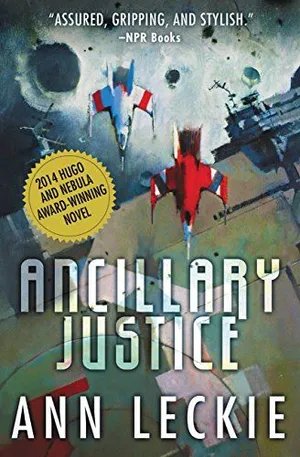
Ancillary Justice, by Ann Leckie
This book was recommended to me primarily because of the author’s interesting approach to gender. The protagonist comes from a culture that doesn’t use gendered language. To represent this in the book, the author uses female pronouns for every character. (Here is a fascinating article about translating the text to other languages, and the difficulties this caused the translators.)
That was great, and I’m glad I read the book for it, but I’m happy to report that the story is also excellent. Breq, the main character, is an “ancillary,” a drone body normally controlled by a starship. In fact, a ship will usually control dozens of these bodies, and the ships with their ancillaries are used to control an empire. Long story short, Breq’s ship got on the wrong side of the Emperor, and was destroyed. Using the one surviving body it has, she swears to kill the Emperor.
-
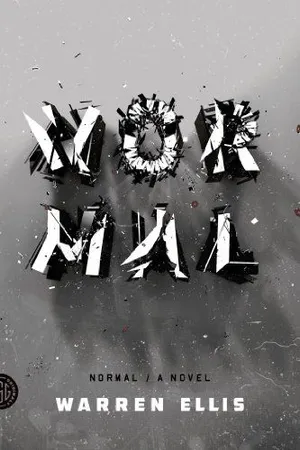
Normal, by Warren Ellis
I’m a huge fan of Warren Ellis, and will read just about anything he writes, so when I heard he had a new novel, I was really excited. The story is about a futurist who is sent to what amounts to a retirement home for spies and theorists who have become broken by all the horrible things they see in the world. The retirement home is completely cut off from the rest of the world, with no phones and no internet. The story he tells in this setting is great, but the best part is definitely watching Warren passionately describe his own ideal disconnected retreat from our world of distractions.
-
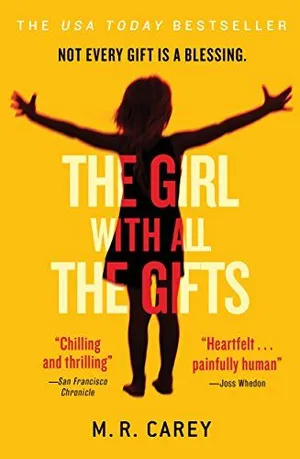
The Girl with All the Gifts, by M.R. Carey
I can’t remember how this book came to my attention, but I’ve never read a stronger… Actually, in the course of writing this, I just realized that it’s better if I don’t say anything about it. The reveal of what’s actually happening is best if you don’t know going into it. Suffice to say it’s an excellent twist on a common horror movie trope. Amazon made a pretty good adaptation of it, but the book is better by far.
-
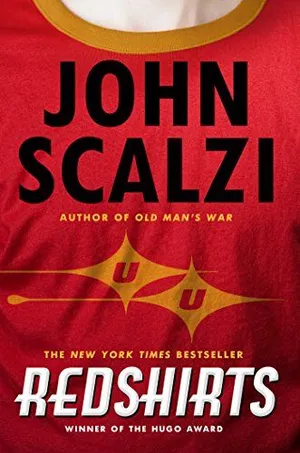
Redshirts, by John Scalzi
Scalzi takes a simple joke of a premise — What if all the redshirt crew members on Star Trek knew they were scripted to die on away missions? — and manages to turn it into a full-size and astonishingly fun book. I expected this to be full of in-jokes and Trekkie humor and to give it a thorough “meh” rating, but I was pleasantly surprised by the length he was able to take it.